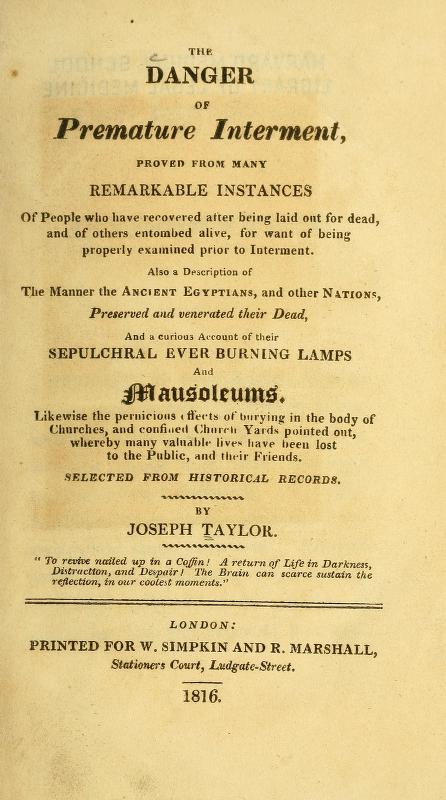
First published in 1816, when Edgar Allan Poe was an impressionable seven years old, this “science” volume chronicles reported incidents of premature burials, re-animated corpses, and bizarre embalming methods. It even finds time to get into politics, advocating for new laws that would make burial illegal within church yards and city limits.
Poe scholars point to this text as a possible reason for the author’s obsession with alive burials. Even if Poe never read it, its existence shows there was a general unease about premature interment at this point in history. Such evidence can further be found in early nineteenth century coffin technology which might include literal bells and whistles to alert a passing sexton.
Read more “Joseph Taylor – The Danger of Premature Interment (1816)”